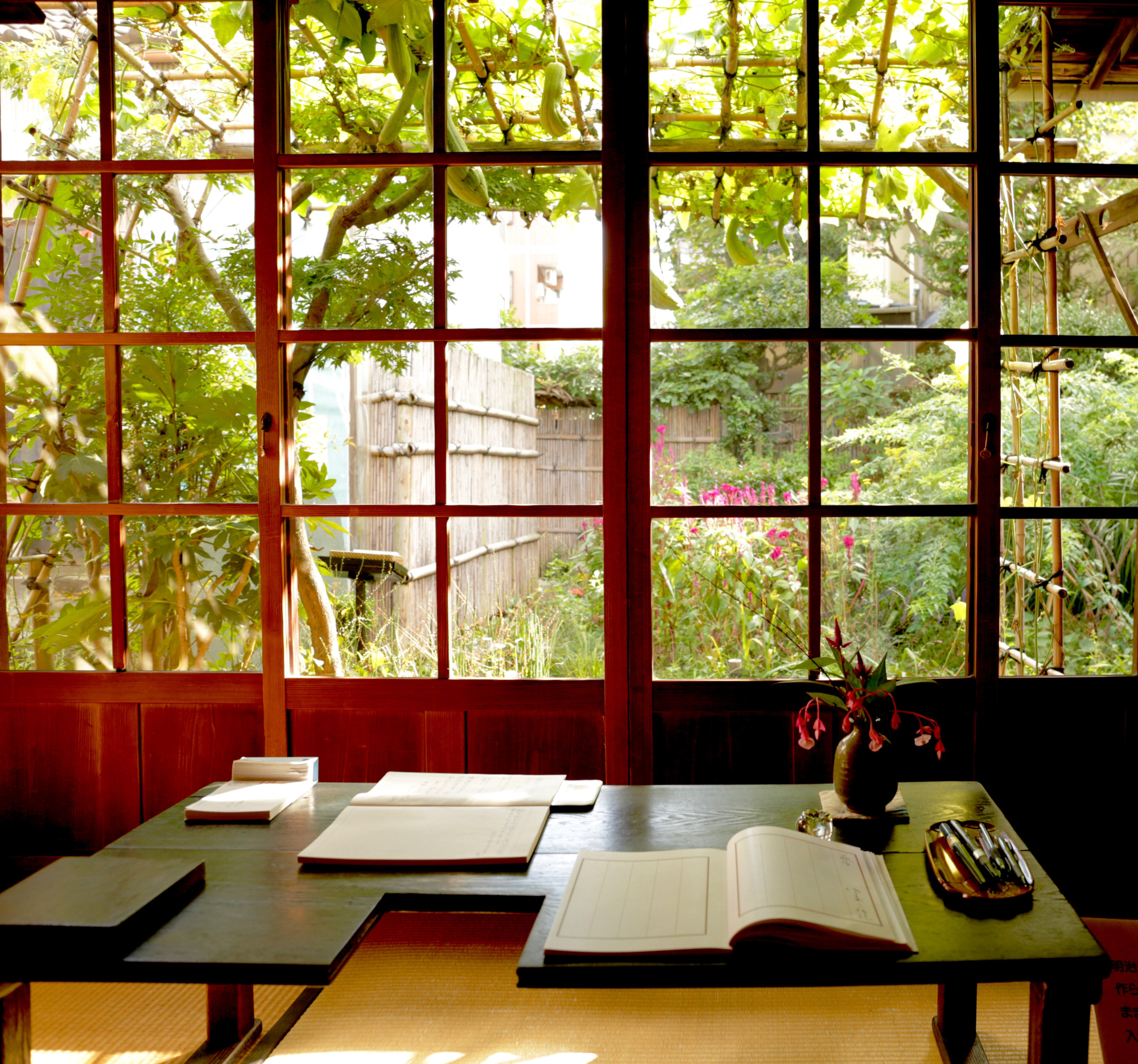Alighting at one of the JR Yamanote Line's quietest stops, Uguisudani Station, I chat with the stationmaster about its name, which means "Bush-Warbler Valley." Apparently, the area used to have limpid streams and a bucolic setting that attracted the feathered songsters, also known as Japanese nightingales. A recording of the passerine's liquid song is broadcast on the platform in the early morning hours, the stationmaster tells me, but a quick glance around the vicinity makes me doubt the actual birds still sing here.
Uguisudani Station serves the quiet neighborhood of Negishi, where the famous poet and critic Masaoka Shiki (1867-1902) once lived. Though born in Matsuyama, Ehime Prefecture, Shiki lived out the last years of his short life, bed-ridden from tuberculosis and bone-related complications, in Shiki-an, as his house was known. I've secured permission to photograph inside Shiki-an, something usually forbidden.
This year marks the 150th anniversary of Shiki's birth, and as though in celebration of that fact, a long-missing notebook of his handwritten work, including five unpublished haiku and two self-portraits, has just been located and is now on display at Shiki-an. I'm eager to see the home of the man who not only introduced Japan to the rules and regulations of baseball, but also gave the world's shortest poetry form its name: haiku.


















With your current subscription plan you can comment on stories. However, before writing your first comment, please create a display name in the Profile section of your subscriber account page.